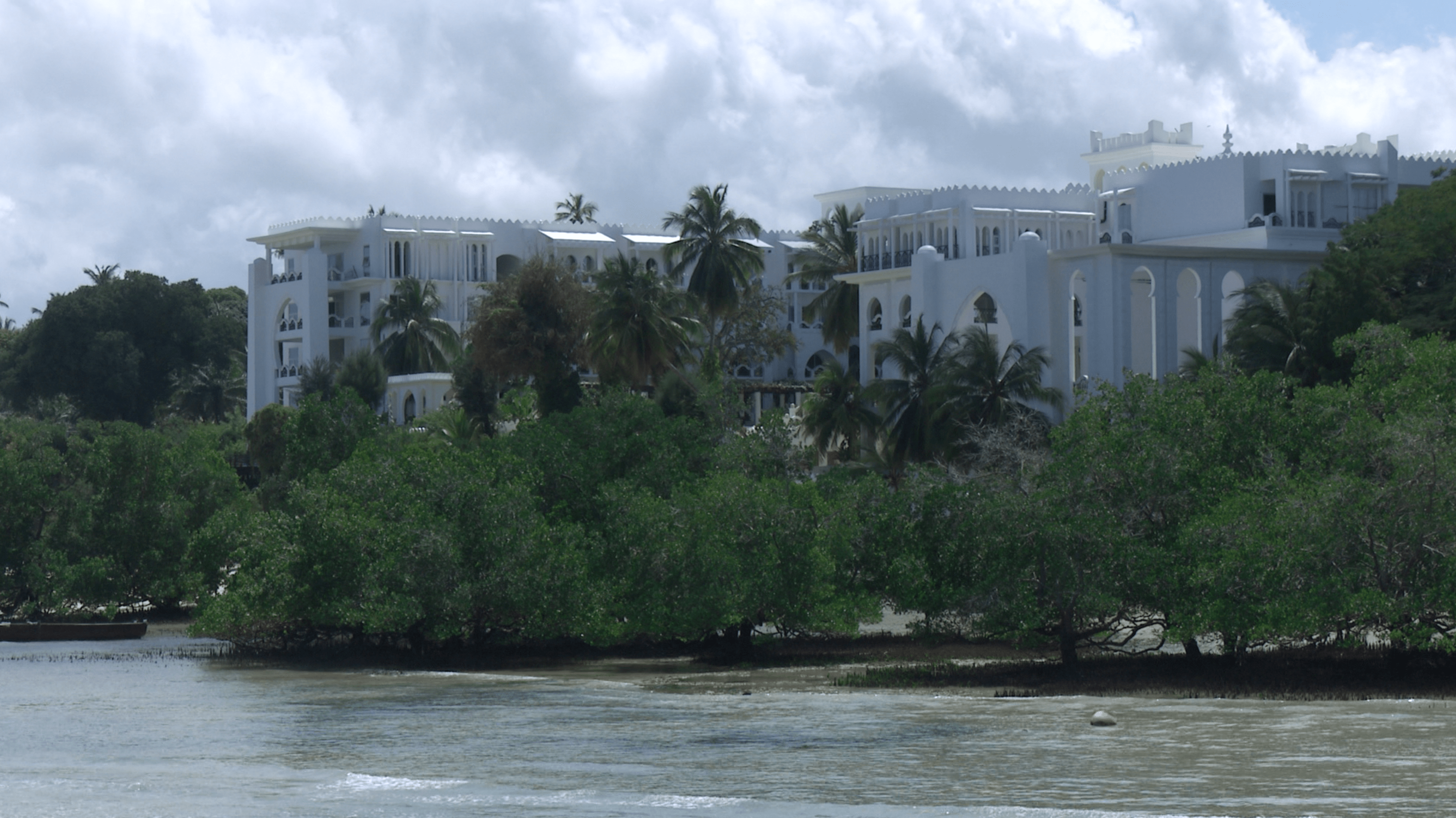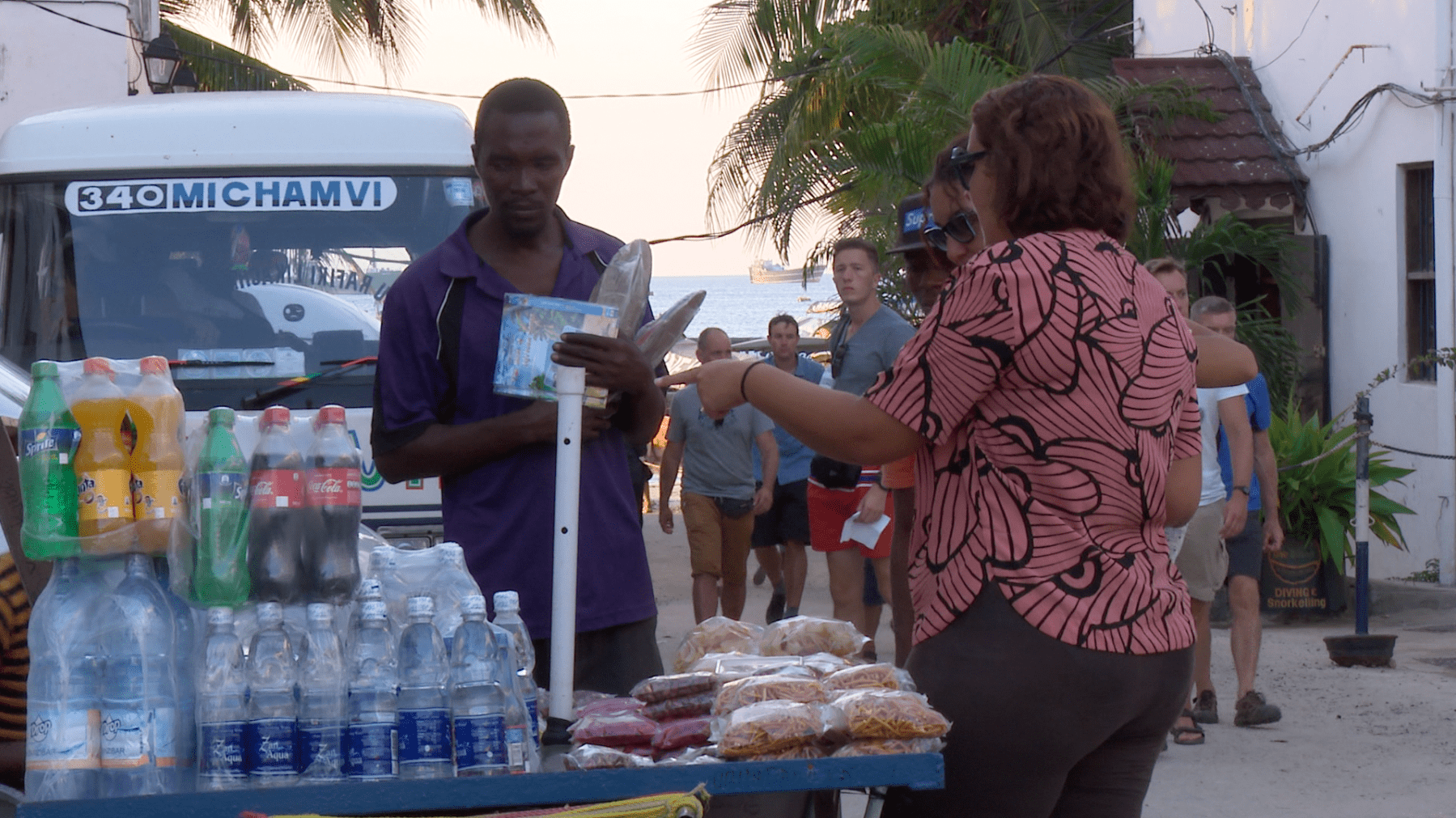Podcast: Paradise Under Pressure
New podcast series reveals the consequences of increased tourism in Zanzibar
Welcome to Zanzibar – a paradise on earth just off Tanzania’s eastern shore with white bounty beaches, palm trees and turquoise-blue waters. It is the perfect destination for a dream vacation. But the paradise-like island is under pressure from the thousands of tourists that visit every year. With the tourists comes money and opportunities but also mountains of waste and pressured working conditions, just to mention a few of many problems. In this new three-part podcast series, anthropologist Emil Morell from School of Global Health examines the consequences of Zanzibar’s increased tourism.
Text: Morten Mechlenborg Nørulf and Emil Morell / Pictures: Emil Morell and School of Global Health.
Redirected by UCPH Global Development from School of Global Health
Listen to 'Paradise Under Pressure' here
NB: The podcast series is in Danish and English.
80% of Zanzibar’s solid waste is created by tourism
“The beach is the main tourist attraction in Zanzibar. But there are complaints about plastic bottles lying on the beach. Many Zanzibaris might not find this a problem but to tourists, it is a big deal. So it might lead to a decline in the number of tourists coming here. Because they say it is displeasing seeing the bottles lying on the beaches” explains Aziza Abdulkadir from State University of Zanzibar who do research in solid waste management.
In the first episode we take a closer look at how Zanzibar is coping with all the waste produced by tourism. Besides Aziza Abdulkadir we visit Justin Madho, the manager of the waste management company Zanrec and Sjani Müggenburg, who is the director of Ozti East Africa – a company that creates furniture out of the screw caps from the thousands of plastic bottles imported to Zanzibar every day.

½ a million tourists visited Zanzibar in 2019
“The unique thing about Zanzibar is our history and our culture. And we've got to make sure that we bring that out and that we don't overbuild, over-develop and let all these huge hotels with a thousand tourists come and trample all over our precious heritage” warns Julia Bishop, Vice-Chair in ZATI – an association for hotel owners and investors in Zanzibar.
There is good reason for investing in tourism in Zanzibar. In 2019, it was predicted that ½ a million tourists would visit the island. And tourists bring money and growth but research also shows that the Zanzibaris only have 11% of the management jobs in restaurants and only 20% of the revenue from tourism goes to the local community, whereas 53% is disappears off the island.
Episode two looks at cash flow and work force in the tourist industry in Zanzibar. We also talk to Simai Said, Zanzibar’s Vice-Minister of Education and Kenn Scott, Director at Welcome Ideas – a NGO fighting the drainage of money and jobs.
The tourist industry is taking shortcuts
According to the international hotels in Zanzibar it is hard to find local qualified workers that speak well enough English and have sufficient experience. But according to Kenn Scott from the NGO Welcome Ideas it is only half the truth:
“As much as they (read: the hotel managers) blame the education system and the cultural issues here, I think they have an equal amount of responsibility as well in being part of the solution instead of just always finding shortcuts and pointing fingers.”
In the third episode, we also meet Dustin Klüger, a manger of a suitability program at German hotel, and a waitress from café, who have first-hand experiences with the bad working environment.

About Paradise Under Pressure:
The podcast series have three episodes:
- Episode 1: ’Plastic in Paradise’ (12:00 minutes)
- Episode 2: ’Cash flow and work force’ (15:00 minutes)
- Episode 3: ”The work environment in paradise’ (10 minutes)
Host: Emil Morell, anthropologist and project manager at University of Copenhagen’s School of Global Health.
Editor: Jonas Nilaus Vilhelmsen, photographer and editor at University of Copenhagen’s Centre for Online and Blended Learning
Music: Youssoupha Sidibe / Click here to see the license
Paradise Under Pressure is produced by University of Copenhagen’s School of Global Health and Centre for Online and Blended Learning in collaboration with Danish Broadcasting Cooperation Education, Association of Danish Travel Agents and Tour Operators, Gefion Gymnasium and Innovationsgymnasiet Niels Brock. The production is supported by Ministry of Foreign Affairs of Denmark’s Information Grant and University of Copenhagen’s Faculty of Health and Medical Sciences.
The podcast is part of Danish Broadcasting Cooperation’s educational material on sustainable tourism, developed for social sciences and international economy at high school level but may also be used in other social science subjects in youth education.
The educational material is developed in collaboration with lector in social science and history, Lotte Nygaard Hagmann from Gefion Gymnasium and lector in international economy and social science, Sune Gjerding from Innovationsgymnasiet Niels Brock.
Free online course in Sustainable Tourism
School of Global Health offers a free online course on the Coursea platform on Sustainable Tourism - promoting environmental public health.
